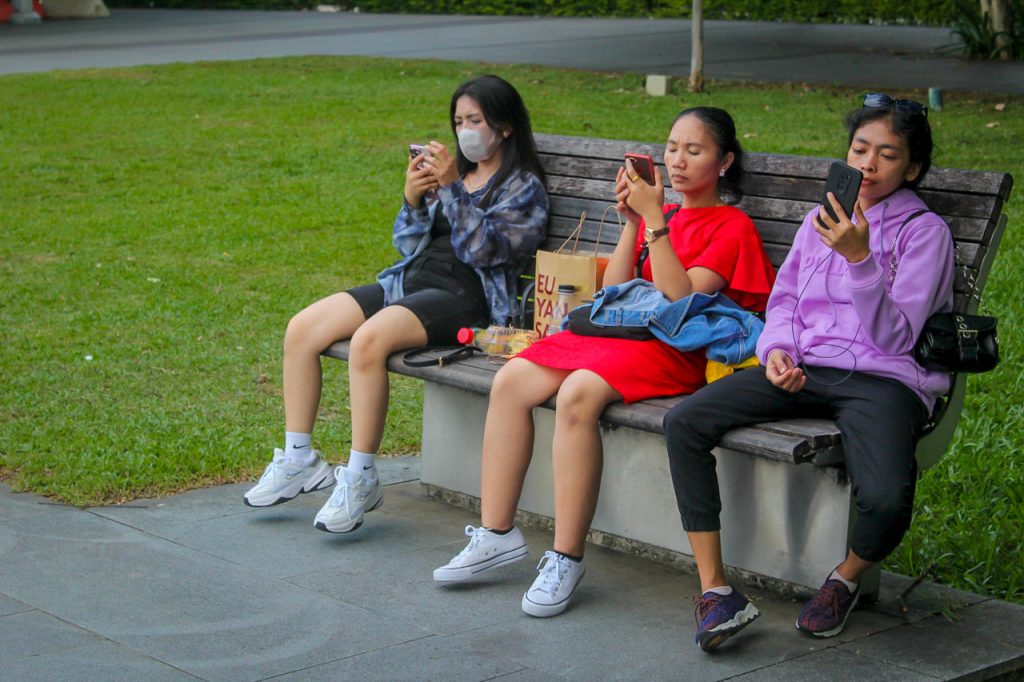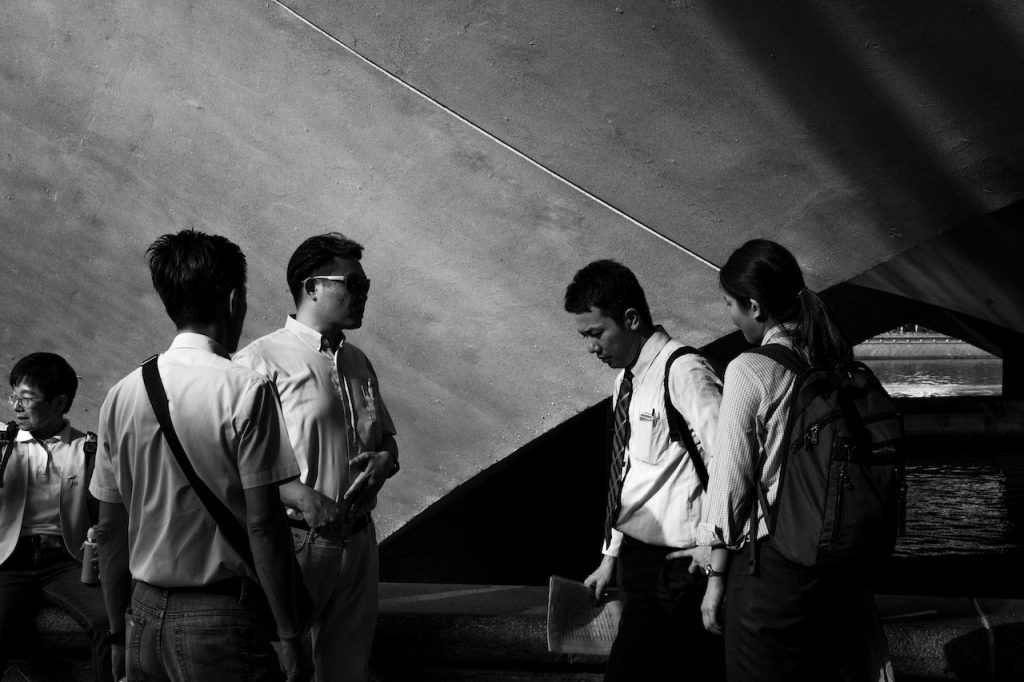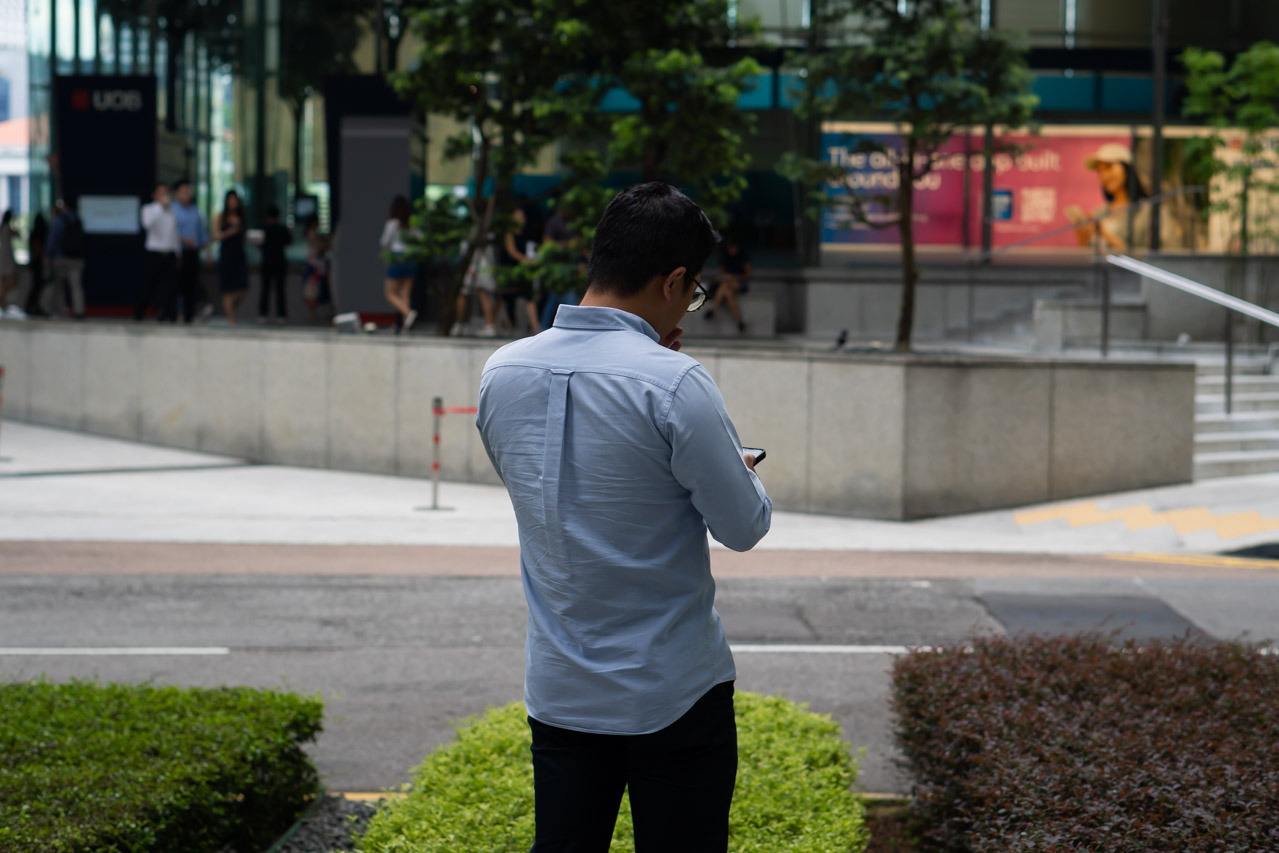Top image: Shiva Bharathi Gupta / RICE file photo
Fiona was shocked when she heard the voice of the woman on the other end of the phone.
She had, supposedly, just spoken to this very woman a few days ago. But now, a distinctly different voice was coming through the call. The person on the line claims that they had never spoken before.
ADVERTISEMENT
After a perplexing conversation and some further digging, it was revealed that the first woman Fiona spoke to was a fake. A job interview candidate Fiona was screening had planted his friend to pose as his previous supervisor for his reference check.
Fiona, 33, says that the encounter in 2018 is one that she will always remember.
Everything had gone according to his plan at first. When Fiona first called this supposed supervisor, her team had suspected nothing—no red flags were raised. The ‘supervisor’ spoke well of the candidate while acknowledging several weak points for improvement. It all sounded too real.
But days later, by a stroke of pure luck, his lie was exposed when Fiona conducted an employment verification with his previous company.
“The HR manager told me that they were new and did not work with the candidate, so they weren’t in a position to comment. Instead, they directed the line to his former supervisor.”
After Fiona clarified everything with his previous employers, she found out that they did not have nice things to say about the candidate.
The company that had hired Fiona to do background checks for their job candidates was more than taken aback by the news. They were already in the process of onboarding him because he seemed like a good hire.
As expected, he didn’t get the job. He would have, if not for professional background investigators like Fiona.

What It Takes To Investigate
While some companies opt to do background screening in-house, it is often very difficult and time-consuming.
Although verifying one’s formal education, employment or professional qualifications is not rocket science, it takes time to establish the right point of contact and multiple follow-ups to chase a response. Doing it locally can still be manageable, but language often becomes a problem when checking with the applicant’s school or ex-employer overseas.
Different industries ask for different requirements. For example, the finance industry here has to conduct checks in compliance with the standards set by the Monetary Authority of Singapore (MAS).
Someone in IT might require extra checks on their professional skills, such as verifying their JavaScript qualification. Retail companies might prioritise reference checks and previous work experience, even forgoing the educational check entirely for non-executive roles.
And contrary to what you might expect, most companies today skip social media checks because of the extra cost—or because they don’t think it’s important. Who’d want to browse through years of Tweets or take the time to uncover a long-lost Blogspot account from a decade ago? Some are also worried about the legality of doing such digging.
ADVERTISEMENT

The truth: It’s legal for employment purposes. Because social media is public information, it is treated in the same manner as public records.
What is not okay is hacking into private accounts. So if you’re ever worried about your prospective employers doing a social media check on you, setting your accounts to private might be a good idea.
Background checkers, however, will have the means to find out information that not everyone can access. They can check whether you have a former criminal record or if you have been arrested before. They can also find out all previous lawsuits that you were involved in (including divorce cases), your relations to any politicians, and even your outstanding credit record.
Not anyone can access these records even if they want to—approvals need to be granted. The cost can be extremely prohibitive to maintain, especially if you conduct only a few searches a year.
With job applicants who have worked or lived abroad before, the checks can become even more complex and incur further costs as multiple jurisdictions involving regulatory clearances are needed.
Sometimes, backgrounder checkers might even need to make a trip down in person. Fiona recounts having to physically head down to the Supreme Court to retrieve manual records, where she had to wait several hours for the judge to be done with hearings before he could see the request and approve it. Only then can the staff retrieve the records for her.
Her colleagues have also made physical visits to confirm the candidate’s schools in countries such as India and China, only to find out that the site is an empty building waiting to be demolished. Photos are then taken as documented evidence that no such school exists.

It’s not so different from conducting exposés, so it makes sense why folks like Fiona are drawn to the profession.
For Fiona, who studied journalism, her favourite part of the curriculum was investigative journalism. The skills she learned back then are no different from the skills needed to be a background investigator.
To be good at this job, you need to be good at analysing and evaluating—to be able to understand and comprehend the information that’s in front of you. You need to be able to spot potential red flags and know where to dig and find evidence.
“Those people who can doxx and find out a lot of things online can actually be trained to become valuable analysts for our company,” she jokes.
Of course, they need to be more than just keyboard warriors. Analysts have to be ahead of the people they investigate to unravel red flags—red flags that could mean trouble down the road for the companies looking to hire them.
A Matter of Integrity
Background checkers like Fiona usually find minor discrepancies that can be usually attributed to human error. Like exact graduation dates or typos.
But a fair number of cases are clear fraud cases with the intent to deceive HR or the company.
“For example, companies who trust their employees and don’t conduct checks may be misled by candidates who lie about their previous pay in order to negotiate a higher salary.”
Pulling it off is as easy as knowing a little photo editing magic. Most errant candidates Photoshop their paychecks. Even if employers were suspicious or extra careful and asked for their CPF statement, that can be Photoshopped too.
“It’s not difficult at all. And now candidates are getting better at it; you don’t even have to know how to use Photoshop. Even PowerPoint will do. This is becoming increasingly common.”
Other common fraud cases include lying about their qualifications, such as faking their degrees to apply for a job requiring at least a degree. It’s so common that you can purchase one of these fake certificates online for less than $100.
Fiona shares the most shocking case her team handled: A 30-something-year-old former convict who provided them with fake information to elude discovery.
“She gave us a different name without disclosing that she had undergone a name change just a year before. It turned out that she did that because she was worried that her real name might pull up her criminal record.”
The lady had been jailed for fraud when she was previously busted for faking her degree and lying her way into a post-graduate programme. She then dropped out of the programme because it was too challenging for her, but went on to fake her postgraduate graduation certificate.
She used all the fake certifications to apply for a job. After a background check, she was caught by her prospective employer, who reported her to the authorities. She was imprisoned for under a year.
But shortly after her discharge, she attempted to pull off the stunt again with Fiona’s client. She never got the job, of course.
“Just imagine—she could have gone to another employer who did not have a background checking policy. She would have made it through.”

Fiona makes it clear that just because you fail a background check does not mean you won’t get hired. The importance of the results of the background check depends on the requirements of the company. Some companies go ahead to hire an ex-convict but put into place different security protocols to avoid the same issue from happening again.
Many companies take the employee’s performance during the probation period into account, in addition to the background check, as to whether they will keep the employee.
The key thing is that the company just needs to know ahead of time so that they can take the necessary precautions.
“Who you are today, and your experience may still make you a good fit for the company. It’s about whether you are willing to change and whether you are still that same old you.”
Overly Trusting or Just Complacency?
In Singapore, there is no regulation for employers to do a background check on their employees. The only industry that has a semblance of a mandate is the finance industry, where MAS proposed doing compulsory background screenings in 2021.
Compare this to other countries such as the UK, where employers are required to do screenings—especially for industries that involve working with vulnerable groups such as the elderly or young children.

When Fiona first started working as a background checker, the first few years were tough. The industry is simply not well-established in Singapore, and there was little demand for her services, aside from the financial sector and US-owned companies.
“Companies always assume that candidates are 100 percent honest—especially for the ones who pass the hiring interviews. But it is precisely because candidates know that their companies don’t check, so they are not afraid of lying to protect their own self-interests,” she remarks.
“This can be as simple as lying about their salary in order to negotiate a higher pay or pretending they had a higher job title. The more extreme ones go on to plant reference checks since you are calling the person whom they direct you to anyway. Most candidates are not silly enough to connect you to a referee who might say bad things about them and ruin their chances of getting the job.”
The current lack of companies doing background checks stems from growing up in a society that sometimes takes safety and security for granted. If you come from a culture where you have not had any problems with certitude, it can be difficult to understand that it could happen.
“The biggest hurdle is trust. Singaporeans trust other Singaporeans too easily. They trust that the candidate won’t lie and trust that the pay slip is real. They assume that the government will do the check. But ask the government, and they will tell you that the responsibility lies with the employer.”
She notes that the phenomenon of trust is unique to Singapore and other Asian countries. Her foreign colleagues across the international team are often shocked that the market for background checking is so underdeveloped in Singapore.
“They don’t understand why employers here don’t screen their staff and don’t want to spend on screening, especially when the cost of a background check often costs less than 0.5 percent of the annual wages they pay to the employee in question,” she says.
“Paying to terminate a bad employee and make a new hire is a thousand times more costly.”

Verify It All
Fortunately, more employers are open towards screening their employees. The news about the Ministry of Manpower requiring verification of educational qualifications of Employment Pass applicants is evidence that the culture is starting to shift.
But there is a growing need and urgency to grow out of this overly trusting and complacent mindset because there are dangers in not doing the proper checks on potential employees.
“It’s both a good and bad thing that we trust our government a lot. We trust that, for example, preschool teachers are all screened. I thought that would be the case as well, but it isn’t.”
Fiona was surprised to learn that, unlike how it is in Europe, many preschools here don’t actually screen their teachers thoroughly. If schools hire a person who has had a violent or sexual abuse history, it might not be uncovered before it’s too late.
Candidates with a tarnished record know this as well, so they go on to work in freelance roles or work in a different country where background checks are not conducted. That way, they can avoid detection.
“You’re just basically waiting for an incident to happen. By the time the whole thing gets dug up, it’s a bit too late. Someone would have been a victim already.”






